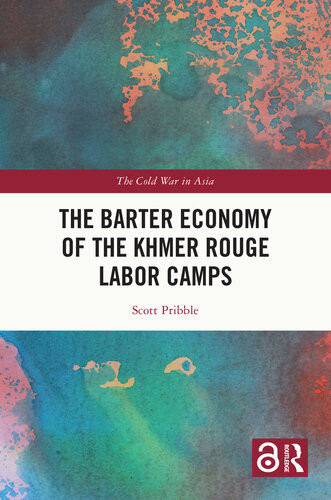

Most ebook files are in PDF format, so you can easily read them using various software such as Foxit Reader or directly on the Google Chrome browser.
Some ebook files are released by publishers in other formats such as .awz, .mobi, .epub, .fb2, etc. You may need to install specific software to read these formats on mobile/PC, such as Calibre.
Please read the tutorial at this link: https://ebookbell.com/faq
We offer FREE conversion to the popular formats you request; however, this may take some time. Therefore, right after payment, please email us, and we will try to provide the service as quickly as possible.
For some exceptional file formats or broken links (if any), please refrain from opening any disputes. Instead, email us first, and we will try to assist within a maximum of 6 hours.
EbookBell Team

4.4
62 reviewsPribble investigates the barter economies that developed in many of the labor camps established under the Khmer Rouge in Cambodia.
When the Khmer Rouge abolished currency and markets in 1975, starving Cambodians created underground exchanges in labor camps throughout the country, bartering luxury items for food and other necessities, while simultaneously undermining the regime's ideological goals of eliminating any traces of capitalism in Democratic Kampuchea. Pribble asserts three key points about the barter economy in the Khmer Rouge labor camps. First, the underground exchanges in Democratic Kampuchea provided food and medicine for desperate people subsisting under a totalitarian regime, saving the lives of countless Cambodians. Second, bartering was the riskiest way to obtain food because it was dependent upon the discretion of two or more individuals from different social classes under the threat of violent punishment, thereby altering the social dynamics of the camps. Finally, despite the regime's extreme efforts to eliminate foreign influence from the country and impose communist ideology on millions of citizens, basic forms of market capitalism and a demand for superfluous luxury goods persisted in labor camps throughout the country.
A fascinating study of the human consequences of imposing rigid ideology, that will be of particular interest to scholars and students of political history and Southeast Asian history.